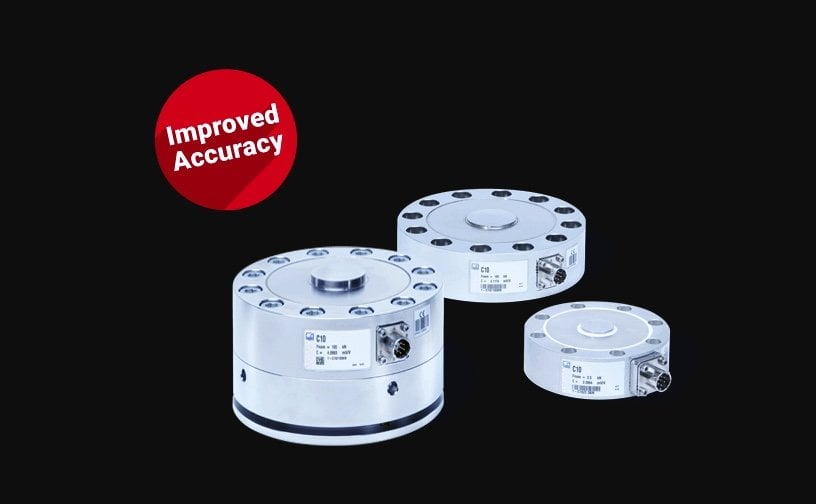www.industry-asia-pacific.com
20
'20
Written on Modified on
The New and Improved C10 Force Sensor
C10 Compressive Force Transducer: More Cost-effective Due to Increased Precision

Further development of a testing and measuring portfolio does not necessarily mean new products – substantial progress and improved cost-effectiveness can also be attained by the evolution of established sensors. Hottinger Brüel & Kjær has proven this with the facelift of the configurable C10 compressive force transducer:
Continuous improvement led to up to 50 % optimization of individual features such as non-linearity, hysteresis, and creepage – significantly reducing measurement uncertainty. This, in turn, means that the C10 can be used across a broader measuring range – enabling even small forces to be measured without the need to exchange the sensor.
The C10 compressive force transducers have not been modified; they have only been technically refined. It is still possible to adapt them individually to the measuring task at hand due to the availability of around 2500 different configuration options. Versions with connectors as well as force transducers with a fixed cable are offered and are optionally equipped in such a way that they can be connected directly to the HBM measuring amplifier systems without plug mounting. Variants with redundant measuring circuits (double-bridge versions) or TEDS are also available.
As is typical of HBK force transducers, the C10 are made of stainless materials and tested in the in-house EMC laboratory in compliance with international standards. They have also been proven to be shock and vibration resistant in tests. These properties have made C10 series sensors the ideal solution for demanding test bench, laboratory, and production applications for years.
www.hbm.com

